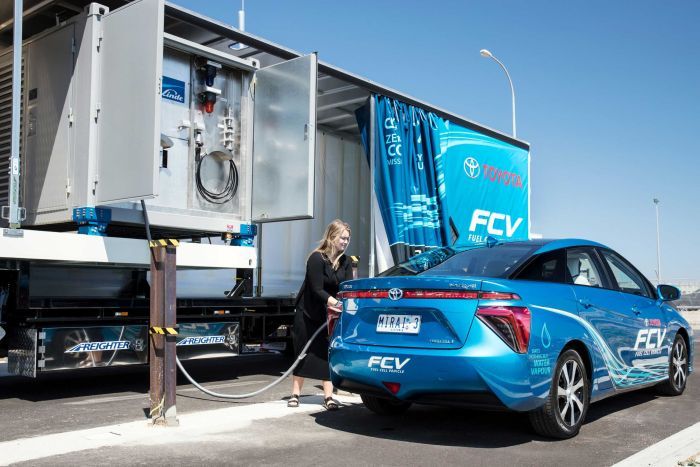On Thursday morning, Australia’s Smart Energy Council announced its initial global and domestic ‘Founding Partners’ for its hydrogen Zero Carbon Certification Scheme.
So far, the partners include:
- Australian Capital Territory (ACT) Government
- Ammonia Energy Association
- COP26 High Level Champions for Climate Action
- CWP Global
- Energy Web
- Star Scientific
- Australian National University
- Evoenergy
The Smart Energy Council launched its plans to develop a green hydrogen certification in January of this year, stating it was a matter of urgency and prerequisite of Australia properly capitalising on its green hydrogen opportunity.
The Council also announced details on its first pilot certification project under the scheme, which will be ActewAGL’s hydrogen refuelling station in Canberra. The project, which opened in March, is expected to be certified under the Council’s scheme by the end of July 2021.
Certification crucial to Australian hydrogen ambitions
Australia currently has the largest hydrogen project pipeline of anywhere in the world, and the Smart Energy Council is steadfast in its belief that, based on discussions with international partners, the export market wants green hydrogen, ammonia and other derivative products only.
With Australian governments, namely the federal government, seeming willing to also back blue and grey hydrogen projects (that is, hydrogen made with fossil fuels), the Council says its crucial for Australia to be able to certify its hydrogen’s origins to make it attractive to the global market, in which many of the major players have increasingly advanced climate ambitions.
John Grimes, Chief Executive of the Smart Energy Council, said its Zero Carbon Certification Scheme has received strong interest both domestically and globally, adding he is pleased the Council has been able to attract such a strong list of initial partners.
“The list of Founding Partners shows there is extraordinary global interest in the Zero Carbon Certification Scheme,” he said.
Virtually from the outset, the German Energy Agency, dena, has been an adviser for the Council’s scheme. The German peak boy is also at the centre of a number of other global hydrogen alliances, affording it extremely useful oversight.
Likewise, global coalition the Green Hydrogen Catapult has been a partner initiative to the scheme – it seeks to to accelerate the scale and production of green hydrogen 50-fold in the next six years.
Australia’s green hydrogen ambitions have been ramping up in recent months, with companies like Scientific Star (one of the initial partners listed above), garnering global recognition for its pioneering hydrogen research. Province Resource’s hydrogen project in Western Australia recently grew from 1 GW to a massive 8 GW after receiving preliminary backing from French giant Total Eren.
Evidently, all of the partners listed above agree with the Council’s assertion that Australia should focus its attention on certifiably green practices in its burgeoning hydrogen industry.
“Certification is the essential building block for the export of new zero carbon products, including hydrogen, ammonia and steel. Our customers want to know how much carbon is embedded into the products they are buying and how and where they are produced,” Andrew Dickson, Senior Business Development Manager at CWP Global’s Asian Renewable Energy Hub said.
This content is protected by copyright and may not be reused. If you want to cooperate with us and would like to reuse some of our content, please contact: editors@pv-magazine.com.









By submitting this form you agree to pv magazine using your data for the purposes of publishing your comment.
Your personal data will only be disclosed or otherwise transmitted to third parties for the purposes of spam filtering or if this is necessary for technical maintenance of the website. Any other transfer to third parties will not take place unless this is justified on the basis of applicable data protection regulations or if pv magazine is legally obliged to do so.
You may revoke this consent at any time with effect for the future, in which case your personal data will be deleted immediately. Otherwise, your data will be deleted if pv magazine has processed your request or the purpose of data storage is fulfilled.
Further information on data privacy can be found in our Data Protection Policy.